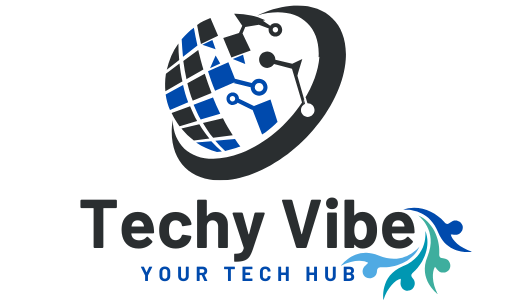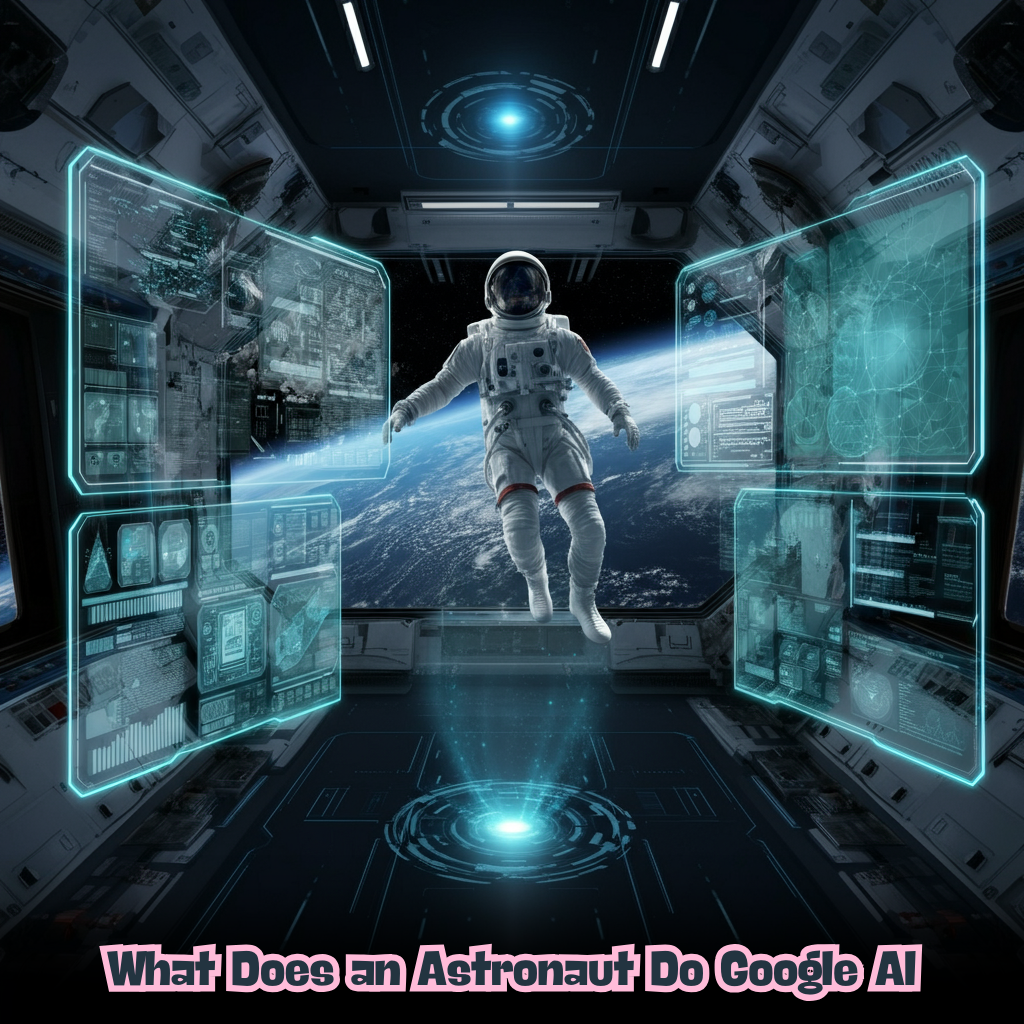Space travel has captivated human imagination for decades, evolving from ambitious dreams to groundbreaking reality. Historically, astronauts have been seen as the ultimate pioneers highly trained individuals on the frontlines of human exploration, equipped with skills to conduct research, maintain spacecraft, and survive the harshest environments known to man. However, with the rapid development of Artificial Intelligence (AI), particularly tools like Google AI, the role of astronauts is undergoing a remarkable transformation. This integration of technology doesn’t just enhance efficiency it redefines what it means to be an astronaut.
Curious about how technology and humanity are working hand-in-hand up in space? Together, we’ll take a closer look at what astronauts do, how Google AI is reshaping their profession, and what the future of space exploration might look like.
What Does an Astronaut Do?
Astronauts may seem like superheroes, but their responsibilities are deeply methodical, blending science, engineering, and physical endurance. Life aboard the International Space Station (ISS), or during other space missions, follows a tightly structured schedule that balances workload, mental health, and physical fitness.
For instance, much of an astronaut’s day is devoted to conducting cutting-edge scientific research. From biology experiments that study how microgravity affects living organisms to physics tests uncovering the mysteries of the universe, astronauts become scientists during their time in orbit. Each experiment contributes to knowledge that assists future space missions and can even lead to innovations back on Earth.
Maintenance work is another crucial task. Space environments are unforgiving, and keeping the spacecraft operational requires consistent checks and repairs. Astronauts repair delicate instruments, maintain air filtration and water circulation systems, and occasionally execute bold spacewalks to mend external systems.
Then there’s the exercise routine. Living in zero gravity might look fun, but it’s no picnic for the human body. To combat muscle loss and maintain bone density, astronauts allocate two hours a day to specially designed fitness regimens. This preparation is particularly essential for missions envisioned to reach Mars—lasting years at a time.
Finally, communication holds a key position in their daily lives. Beyond logistical updates with mission control, astronauts connect with scientists to provide live feedback, and at times, engage directly with the public to inspire a global audience. Maintaining personal relationships with loved ones through virtual connections is equally important for mental well-being.
This delicate balance of high-stakes scientific experimentation, rigorous physical fitness, and mental resilience sets the foundation of an astronaut’s duties. But imagine, then, how an advanced partner like Google AI could enhance these responsibilities.
How Google AI is Transforming Astronaut Duties
Traditional knowledge and cutting-edge technology are no longer separate entities in the field of space exploration—they are merging in profound ways. Google AI has emerged as a key player in this evolution, streamlining routine tasks and tackling complex challenges astronauts face. Its applications are moving beyond mere assistance to becoming indispensable companions for space missions.
One of the standout features of Google AI is autonomous assistance, where AI-powered virtual assistants deliver real-time advice to astronauts. Picture this: an astronaut engineering a multi-component system faces an unexpected glitch. Instead of relying on Earth for instructions and enduring a potential communication delay, AI can process the issue on-site and suggest solutions in minutes—saving time and effort. Virtual assistants interpret voice commands easily, making them practical tools in unexpected situations.
Health monitoring is another area where Google AI is revolutionizing space living. Astronauts encounter unique stressors in space, from physical strain to isolation. Google’s machine learning capabilities help analyze vitals in real time, predicting potential health risks. Alerting astronauts to dehydration or early signs of muscle deterioration is invaluable for long missions. The personalization brought by AI—suggestions for fitness modifications or diet adjustments—adds a layer of individual care often unavailable in current setups.
The impact extends to scientific research. With machine learning algorithms, Google AI processes vast datasets derived from experiments conducted in-orbit. This speeds up the identification of trends within data, transforming raw findings into actionable insights. For example, it can track changes in cell growth during biology experiments or measure material fatigue in a zero-gravity environment.
Additionally, Google AI brings futuristic precision to spacecraft navigation and operations. Missions to Mars or other interplanetary destinations demand unmatched accuracy. AI-powered navigation systems optimize everything from fuel efficiency to trajectory corrections, ensuring both safety and success. Components like rover mapping and extraterrestrial route planning are supported by advanced AI algorithms, allowing exploration of uncharted terrain with precision.
Back on Earth, Google AI arms astronauts with robust image recognition capabilities. By analyzing endless photos captured in space, it aids in identifying celestial activities, monitoring space debris, or even uncovering planetary phenomena. Imagine an astronaut pointing their camera toward a distant asteroid and instantly determining its composition through AI assistance—tasks that used to take weeks suddenly completed in moments.
The Future of AI in Space Exploration
The alliance between astronauts and AI is just beginning, and its future holds exciting prospects. With advancements in robotics, we could see AI-enabled robotic crews working alongside human astronauts. These robotic teammates could assume responsibilities in high-risk environments, reducing potential hazards to humans.
AI may also refine long-term space habitation. From efficient recycling of resources like oxygen and water to creating self-sustained systems that anticipate astronauts’ needs, the possibilities are limitless. With AI analyzing Earth-independent survival, long-duration missions—like a colony on Mars—are becoming more feasible realities.
One emerging concept is the integration of AI into cultural exchanges with other planets or celestial bodies (should contact with extraterrestrial life arise). AI could prepare accurate translations or interact neutrally with foreign systems—an imaginative yet inspiring prospect.
These developments give rise to an important thought—will astronauts one day be replaced by AI itself? While AI is undeniably capable, the human touch, creativity, and adaptability it lacks remain irreplaceable. Much like a pilot depends on autopilot but thrives on instincts and insights, astronauts too will rely on AI while preserving their unique skills.
Redefining the Final Frontier
The question, “What does an astronaut do?” is no longer confined to traditional responsibilities. Thanks to tools like Google AI, astronauts now operate like augmented pioneers, delicately balancing human ingenuity with technological brilliance.
It’s an exciting time for space enthusiasts, scientists, and professionals alike. The synergy between technology and human skill promises groundbreaking discoveries, inspiring individuals worldwide to dream bigger. Could AI eventually reframe how we perceive intelligent companionship outside Earth? Only time—and more exploration—will tell.
For now, astronauts and AI are the new dream team, making the impossible possible one mission at a time.
What do you think how far will AI go in space? Could we call Google AI Earth’s ambassador to the stars someday? Share your thoughts with us and join the conversation!



